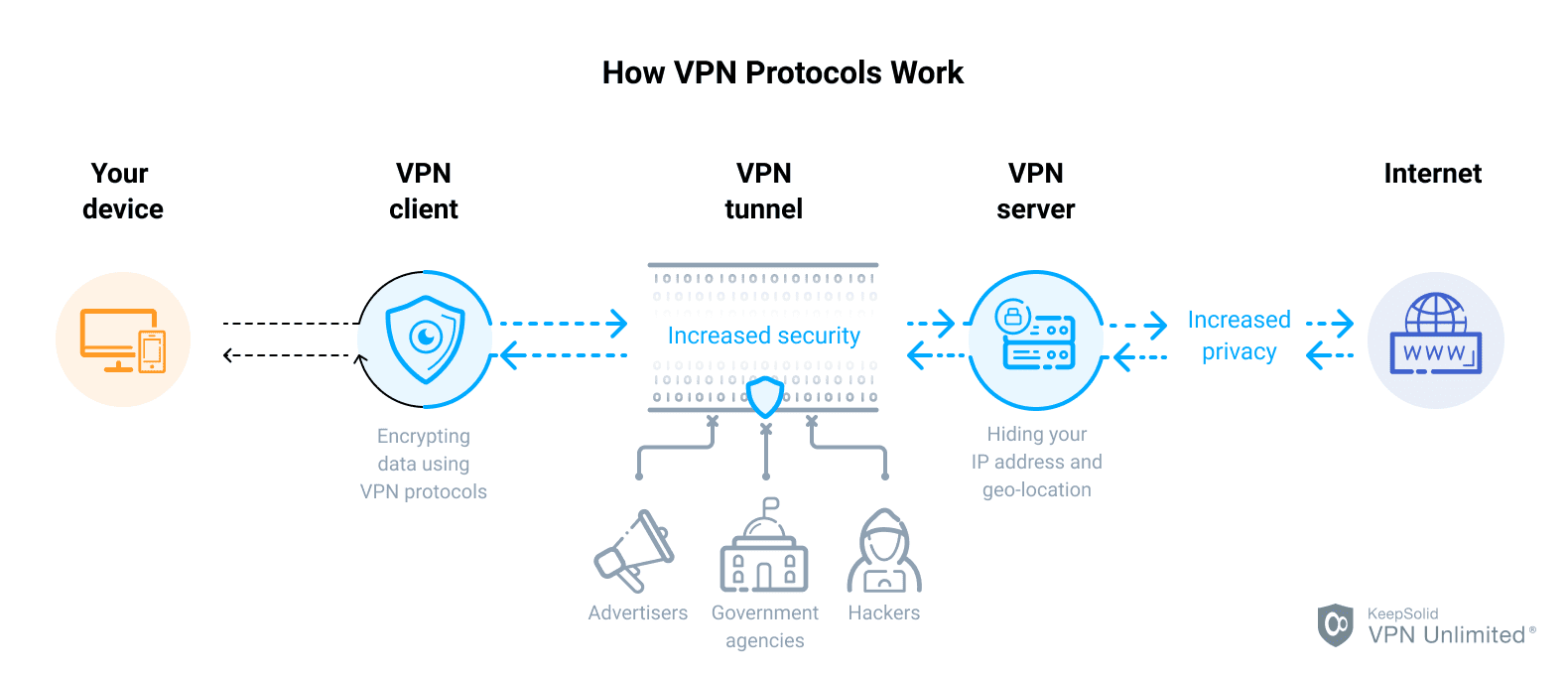Can Police Track VPN Activities
Virtual Private Network, or VPN for short, is a security solution that aims to protect your online activities from any third parties, including your ISP, government, police, advertisers, hackers, and other cybercriminals.
In this article, we are going to figure out if it is so and answer the exciting question of whether police can track VPN usage or not.
Can Police Track VPN Unlimited Users? No!
Thanks to VPN Unlimited safety and anonymity features, police can not monitor online activities, view browsing history, or track which websites you interact with. Now, let's take a closer look at the security measures our Virtual Private Network app provides.
Bulletproof VPN protocols
As we are on the same page, VPN protocol is a set of processes that ensure a secure and fast virtual connection. In other words, it is a method which your device uses to connect to a VPN server.

Our app offers a set of different protocols, each with its unique strengths:
- WireGuard® protocol ensures rock-solid data protection and high performance
- OpenVPN® offers high-level security and allows users to bypass VPN blocks
- IKEv2 implements top-notch encryption and provides a fast and stable connection
- KeepSolid Wise ensures ultimate security and does not throttle our internet speeds
If you are not sure which protocol suits your needs best, select the Optimal one in the VPN Unlimited settings and our app automatically picks protocol based on your current connection conditions and chosen virtual server.
Strong data encryption
AES 265-bit encryption algorithm is one of the most credible ways to prevent any unauthorized parties from accessing your internet traffic and sensitive data. This encryption is highly efficient on a wide variety of hardware and is considered to be impenetrable to brute force attacks.
If the police or any other party intercept your online traffic, the only thing they get is a bunch of encoded symbols that look like gibberish. Moreover, intercepting this traffic, police couldn’t figure out your actual IP address or geo-location, as well as they couldn't be sure whether you’re using VPN or not.
More about encryption strength
Reliable Kill Switch feature
Kill Switch is a must-have VPN option that ensures your traffic and data protection in case your virtual connection suddenly drops. Enable this feature and do not worry about accidental IP, DNS, or WebRCT leaks!
Kill Switch constantly monitors the status of your VPN connection and instantly restricts access to the internet if there are any disruptions or failures. As a result, police or any other third party cannot find out your actual IP address.
More about the Kill Switch option
Strict no-log policy
Can police track VPN Unlimited users? Well, the police can only track VPN if it keeps logs or leaks any information, such as actual IP address or browsing history.
Our team supposes that the online privacy of our customers is a key priority. Therefore, we do not track any information that is transferred through our virtual network, monitor users’ online activities, or else.
By choosing a VPN app that enforces a strict no-log policy, you can be sure that no one, including police, government, or even your VPN provider encroaches on your online privacy.
Explore All VPN Unlimited Security Features
Get our reliable VPN client on your device, activate your 7-day free trial, and check how VPN features work for your online security.
Check if Your Internet Connection Leaking Your Data
VPN Unlimited not only implements great security measures, but also provides the ability to check if the user’s VPN connection suffers from DNS, IP, and WebRTC leaks. On our website, anyone can undergo these leak tests. Keep reading to learn more!
DNS leak issue is especially common on Windows devices. However, it can occasionally afflict other platforms. If a user’s DNS is leaking, this can deanonymize them and put all their online activities into public access.
Your online privacy is inseparably associated with your IP address. Knowing it, hackers can easily find out your actual geographical location, track your internet traffic, and gain access to your online activities.
Chrome, Opera, Safari, and other popular browsers use WebRTC technology that allows establishing P2P connections with websites in real-time. Sometimes WebRTC may send your data without any encryption. If so, any unauthorized parties can access your actual IP address.
Protect Your Online Activities with VPN Unlimited
Download our credible Virtual Private Network on your device and explore unrestricted and secure access to the web! Make sure no one, including your ISP, government, cybercriminals, or police can track your internet activities.